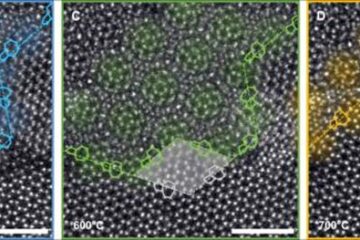Symptoms of Depression Signal Shorter Lives for People with Cancer

A diagnosis of cancer carries such emotional upheaval that a person’s prolonged feelings of depression can eat away at the possibility for long-term survival. In a new study of cancer patients published in the current issue of Psychosomatic Medicine, researchers have found that people’s lives were more likely to be cut short when they had more symptoms of depression.
University of Rochester psychologist Kirk Warren Brown and co-authors used a number of demographic, medical, cancer treatment, and psychological factors to predict longevity in a group of 205 cancer patients over a 10-year period.
Among the psychological factors examined in this study on psychological distress and cancer survival were a variety of indicators of emotional state and coping, including positive and negative mood, anxiety, stress, sense of control, and depressive symptoms. After accounting for the effects of known demographic, medical risk, and cancer treatment factors, results showed that symptoms of depression were the most consistent psychological predictor of shortened survival.
Looking at psychological predictors of survival among individuals with cancer is a relatively new area of study, says Brown, visiting assistant professor in the Department of Clinical and Social Sciences in Psychology. “We’re trying to understand the role of the mind in the disease process. The fact that depressive symptoms were shown to affect the course of cancer in this study has important implications for psychological screening and treatment of cancer patients.”
The researchers suggested that the first year after cancer diagnosis would be an appropriate time to screen for symptoms of depression because, on average, levels of distress remained stable and relatively high in the patients studied. Referrals for intervention, such as psychotherapy, might be appropriate for patients with elevated levels of distress.
All 205 patients in the study were newly diagnosed with cancer (approximately 48 percent of the group had breast cancer). At the end of the 10-year follow-up period–a long time for this type of study–125 were still alive while 80 had died from cancer-related causes.
The role of a person’s mental state in cancer survival is considered controversial in the medical field, but Brown believes that the findings of this study, in conjunction with other research results, suggest that a “truly interdisciplinary approach” to treating the patient as a whole person is essential.
Brown’s co-authors on the study were Adrian R. Levy of the Centre for Health Evaluation and Outcome Sciences at the University of British Columbia in Vancouver; Zeev Rosberger of the Division of Psychology of the Sir Mortimer B. Davis-Jewish General Hospital in Montreal; and Linda Edgar of the McGill University Health Center at the Royal Victorian Hospital in Montreal. The research was supported by the National Cancer Institute of Canada with funds from the Canadian Cancer Society.
Media Contact
More Information:
http://www.rochester.eduAll latest news from the category: Health and Medicine
This subject area encompasses research and studies in the field of human medicine.
Among the wide-ranging list of topics covered here are anesthesiology, anatomy, surgery, human genetics, hygiene and environmental medicine, internal medicine, neurology, pharmacology, physiology, urology and dental medicine.
Newest articles

How 3D printers can give robots a soft touch
Soft skin coverings and touch sensors have emerged as a promising feature for robots that are both safer and more intuitive for human interaction, but they are expensive and difficult…

Oxygen vacancies mediated ultrathin Bi4O5Br2 nanosheets
… as efficient piezocatalyst for synthesis of H2O2 from pure water. As an important chemical raw material, hydrogen peroxide (H2O2) is widely applied in various aspects of industry and life….

Atom-by-atom: Imaging structural transformations in 2D materials
Silicon-based electronics are approaching their physical limitations and new materials are needed to keep up with current technological demands. Two-dimensional (2D) materials have a rich array of properties, including superconductivity…





















